Summer box-office winners and losers, from 'Crazy Rich Asians' to crazy-broke MoviePass
This summer in Hollywood, it was all about the comeback. Pixar brought back The Incredibles after 14 years; Crazy Rich Asians revived the romantic comedy; and the box office rebounded after last summer’s dismal turnout. According to comScore, the summer haul should hit $4.4 billion by the end of the Labor Day weekend, and revenues are up 14 percent from the historic lows of 2017.

Some credit goes to the usual suspects: superheroes, animation, and popular franchises. But it was studios thinking outside the box that made the crucial difference, whether they were producing original films (Crazy Rich Asians, The Meg), catering to female audiences (Mamma Mia! Here We Go Again, Ocean’s 8), daring to make social statements (Sorry to Bother You, BlacKkKlansman), or pushing underappreciated genres (documentary, anyone?). Here’s a rundown of the big winners and losers of the summer 2018 box office.

WINNER: Shark attacks
The Meg, the $123 million Jason Statham thriller, has been called the surprise hit of the summer. To which we must reply: Was no one paying attention during all those previous summers? As 47 Meters Down (2017) and The Shallows (2016) also demonstrated, nothing satisfies audiences like a solidly entertaining shark movie. To deny the power of the shark is to be like the mayor in Jaws. Don’t be the Jaws mayor.
WINNER: Inclusive casts
It’s amazing how long this message has taken to sink in, but a post-Black Panther Hollywood is finally starting to get it: There’s a vast, underserved audience that will happily pay to see stories about people they recognize. The all-female protagonists of Ocean’s 8 ($139 million), the African-American protagonists of BlacKkKlansman ($39 million) and The Equalizer 2 ($100 million), and most of all, the all-Asian cast of Crazy Rich Asians ($117 million) demonstrated once again that the future of film depends on inclusiveness, not keeping white male stars under a permanent spotlight.
LOSER: Accused abusers with top billing
Kevin Spacey was the biggest star in July’s white-collar crime thriller Billionaire Boys Club. Following accusations of sexual misconduct and charges of assault against the actor, Spacey’s other high-profile projects dumped him (House of Cards) or retroactively replaced him (All the Money in the World). Not Vertical Entertainment, which downplayed Spacey in its marketing and released the film on VOD and in theaters. On opening day, the drama made a laughable $126 (no zeroes!), with an estimated weekend total of just over $600. That calculates to fewer than 50 people paying to see the film in a theater.
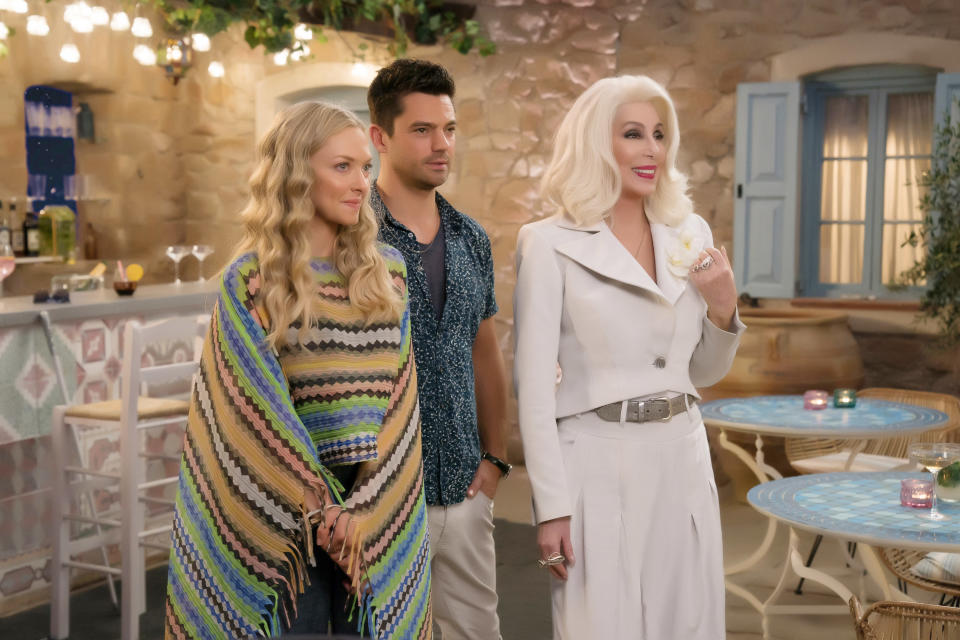
WINNER: Comfort-food sequels
Along with their popcorn, audiences this summer craved a return to the familiar, welcoming back an ABBA-singing Meryl Streep in Mamma Mia! Here We Go Again ($118 million), a dinosaur-battling Chris Pratt in Jurassic World: Fallen Kingdom ($415 million), a death-defying-but-never-defeated Tom Cruise in Mission: Impossible — Fallout ($206 million and a series-best opening weekend), and a reunion with Pixar’s first family in Incredibles 2 ($602 million).
LOSER: Infinite Star Wars spinoffs
Lucasfilm has an impeccable track record, but not everything the studio touches turns to quadanium. (It’s the super-strong metal used in the Death Star. Look it up.) Solo: A Star Wars Story was the second of the stand-alone “anthology films” to open in theaters, following Rogue One: A Star Wars Story — but at $213 million, it brought in less than half of Rogue One’s box office. Is it possible that not every character in the galaxy needs their own prequel? Lucasfilm is reportedly moving ahead with a planned Boba Fett film, but may be rethinking its approach to spinoffs.
WINNER: Crazy Rich Asians
If the classic romantic comedy makes a resurgence, we’ll have this film to thank. Warner Bros.’ adaptation of the Kevin Kwan bestseller has spent three weeks at No. 1, taking in $117 million so far (in part by attracting a robust Asian-American audience, as it’s the first Hollywood film since 1993’s The Joy Luck Club to feature an all-Asian cast). A sequel has already been announced (Kwan’s novel was the first part of a trilogy), so moviegoers can anticipate spending a lot more time with the Young family.
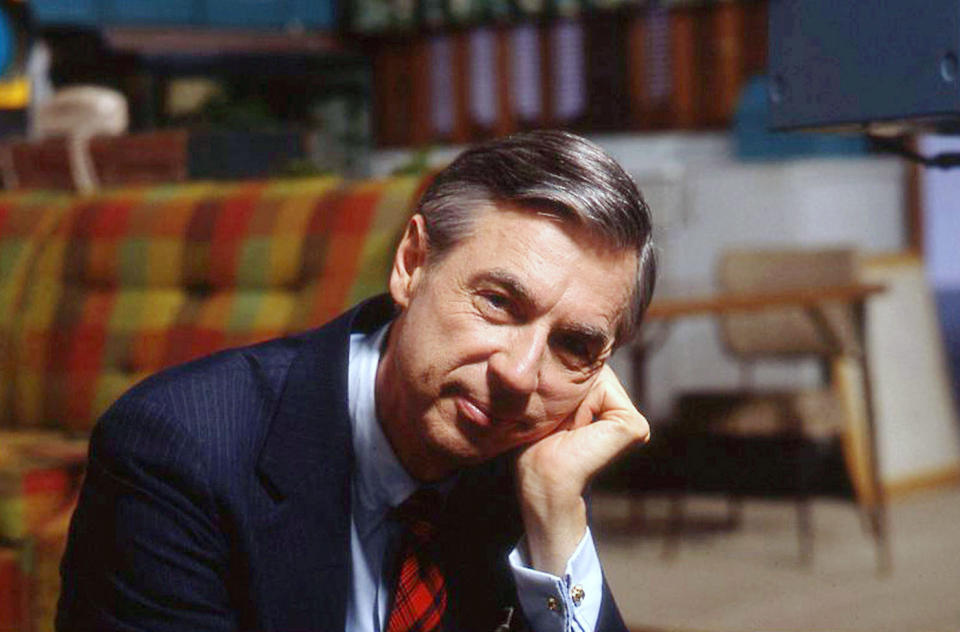
WINNER: Documentaries
Once considered the polar opposite of summer fare, docs are increasingly rocking the box office. Audiences lined up for the feel-good nostalgia of Fred Rogers’s documentary Won’t You Be My Neighbor? (now one of the all-time top-grossing docs at $22 million), the inspiring life story of Ruth Bader Ginsberg in RBG ($13 million), and the stranger-than-fiction plot twists of Three Identical Strangers ($11 million).
LOSER: Comedy
It’s been a tough couple years for straight-up comedy, but usually the summer has one or two laugh-filled hits (Girls Trip in 2017; Bad Moms in 2016; Spy and Trainwreck in 2015). Not so this year. Although some of the biggest movies were indeed funny, they were couched in other genres (i.e., rom-com Crazy Rich Asians, superhero send-up Deadpool 2, heist film Ocean’s 8). The more traditional studio comedies — Tag ($54 million), Life of the Party ($52 million), Overboard ($50 million) — opened to middling reviews and few takers. The exceptions were the Pepsi-created basketball comedy Uncle Drew ($42 million) and the AARP-targeting literary romp Book Club ($68 million), both of which did respectable numbers.
WINNER: Close-to-home horror
Last year’s biggest horror hit, It, was in many ways an old-fashioned monster movie. In contrast, this summer’s top scary movies are grounded in real-world anxiety, immersing audiences in the terrifyingly dysfunctional family of Hereditary ($44 million) and the all-too-familiar politics of The First Purge ($69 million).
LOSER: The Rock at home
Globally, Dwayne Johnson’s high-rise disaster film Skyscraper pulled in $225 million; in the U.S., it dwindled at $67 million. We could blame the much-ridiculed laws-of-physics-defying poster, but it’s worth noting that Johnson’s spring film Rampage — featuring skyscrapers and giant monsters — followed the same pattern ($326 million at the foreign box office, $99 million at home). Johnson remains beloved in his home country, but it’s probably for the best that his next film, Disney’s Jungle Cruise, takes place in the water — not in the sky.
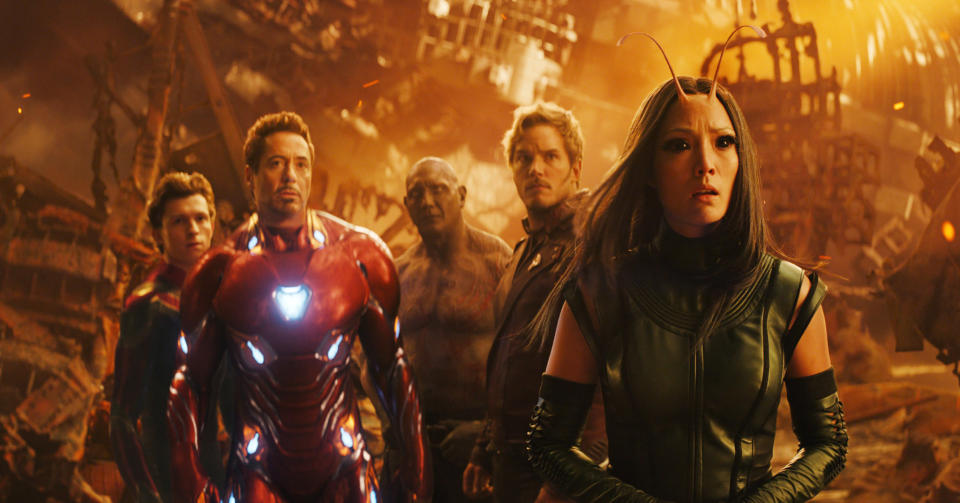
WINNER: Superheroes for everyone
Hollywood’s most lucrative genre came to play this summer, offering up a little something for every conceivable audience. Want a sardonic mutant who makes sex jokes? You get Deadpool 2 ($318 million). Bringing the kids? You get Incredibles 2 ($602 million). Craving high-stakes comic-book drama? Welcome to Infinity War ($678 million). Need lighter Marvel fare? Here’s Ant-Man and the Wasp ($213 million). Only the DC cartoon spoof Teen Titans Go! To the Movies, which made a middling $28 million despite good reviews, failed to use its superpowers to launch into the summer’s Top 10.

LOSER: Gotti
John Travolta hasn’t had a substantial hit since Hairspray in 2007, but not since Battlefield Earth and the third Look Who’s Talking movie (remember, the dogs talked?) has he been in a film as critically maligned as Gotti. The long-gestating crime drama’s zero percent Rotten Tomatoes score likely drove away the potential audience; the film made only $4 million, a large percentage of which came from a MoviePass promotion.
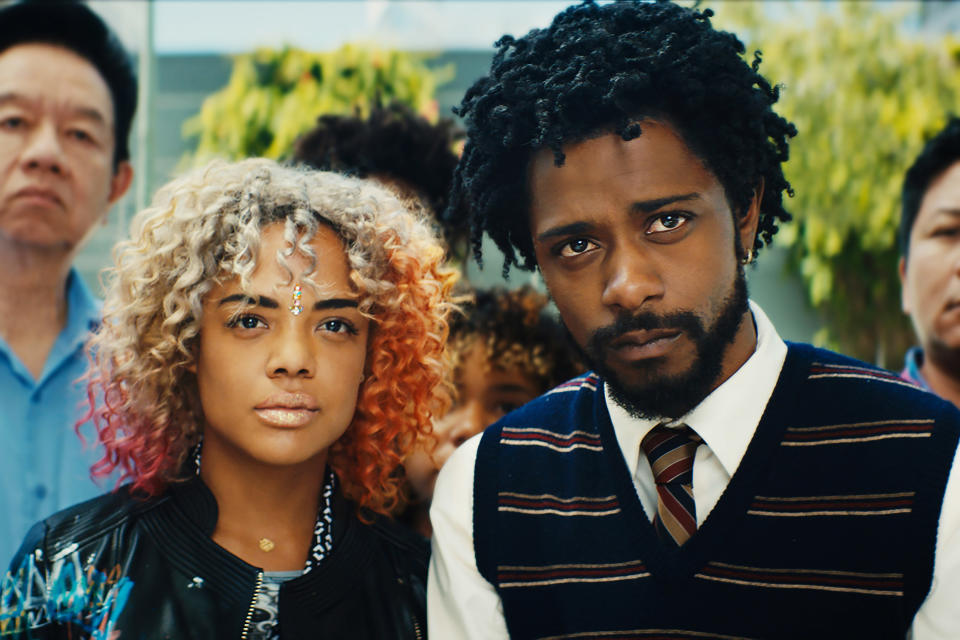
WINNER: Fearless indies
This summer’s specialty box office favored independent filmmakers with bold visions. Boots Riley’s comedy Sorry to Bother You, with its gonzo take on Black Lives Matter, brought in $17 million for studio Annapurna Pictures. Eighth Grade, Bo Burnham’s unflinching drama of adolescence in the social-media age, took in $13 million for A24. Ari Aster’s harrowing Hereditary, also for A24, made $44 million. All three of these are first-time directors, but well-established talent Spike Lee was also rewarded for his audacity, making $39 million at Focus Features for the jaw-dropping comedy-drama BlacKkKlansman.
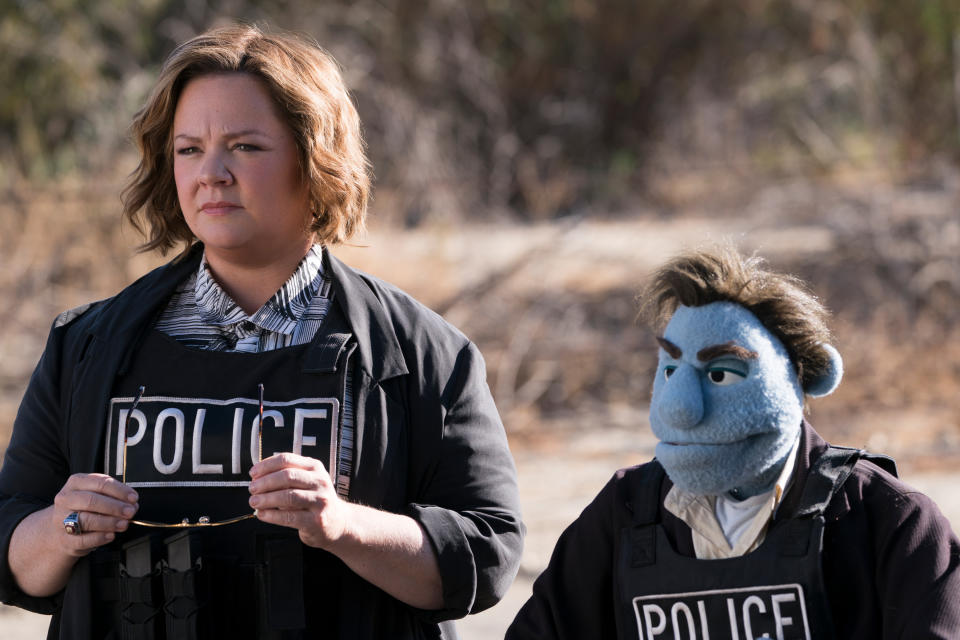
LOSER: Melissa McCarthy
For the past five years, Melissa McCarthy has been one of the few stars who could single-handedly open a film. This summer, however, brought career lows for comedy’s leading lady: Life of the Party made $52 million (the least profitable of her three collaborations with co-writer-director husband Ben Falcone), and the critically reviled puppet comedy The Happytime Murders made just $18 million.
WINNER: Disney
The hits keep coming from Hollywood’s most powerful studio, which placed four of its summer tent pole films in the year’s top 10 films: Avengers: Infinity War ($678 million), Incredibles 2 ($602 million), Ant-Man and the Wasp ($213 million), and even Solo: A Star Wars Story, which came in below expectations — but above many competing studios’ offerings — with $213 million.

WINNER: Films for the other 2 quadrants
Since the 1970s, male audiences under 25 have been considered Hollywood’s bread and butter. Much of that mentality remains (see: all those superhero movies), but one of this summer’s box-office lessons is that female filmgoers over the age of 25 should not be ignored. That’s the audience that drove the success of Mamma Mia: Here We Go Again ($118 million), Ocean’s 8 ($139 million), and the modest comedy Book Club ($68 million).
LOSER: The YA dystopia-industrial complex
Are we done with this yet? Although every major teen-dystopia franchise has seen diminishing returns (Maze Runner, Divergent, even box-office juggernaut The Hunger Games), studios keep trying to revive the genre. This summer’s The Darkest Minds didn’t do it, grossing $12 million at the August box office.
WINNER: Dead Avengers
Avengers: Infinity War aimed to shake up the Marvel Cinematic Universe by putting its most beloved characters in mortal danger — and audiences were here for it. Or maybe they just wanted more T’Challa. Either way, Marvel’s wildly ambitious sequel reaped $678 million at the box office, easily topping the summer box office — and becoming the second-highest-grossing film of 2018, next to Black Panther ($700 million).

WINNER: Undead animation
The Hotel Transylvania franchise, in which Dracula (voiced by Adam Sandler) is a hotel owner with a wacky monster family, has been a steady earner for Sony since 2012. This year’s Hotel Transylvania 3: Summer Vacation was the first to eschew a Halloweenish fall date for a summer opening, and the gambit payed off: with $162 million in grosses, it made more than the original (if slightly less than Hotel Transylvania 2).
LOSER: MoviePass
The deal that seemed too good to be true ultimately was. MoviePass promised its 3.2 million subscribers the opportunity to go to the movies as often as they wanted for a $10 monthly fee. Only one problem: MoviePass wasn’t making any money. In recent months, MoviePass holders have dealt with limits on screenings, “blackout dates” for blockbusters, and threats of a price hike. The service isn’t dead yet, but its share price has tanked and a reported 47 percent of MoviePass subscribers are currently thinking about canceling.
Watch: Our 5 must-see movies for fall 2018:
Read more from Yahoo Entertainment:


